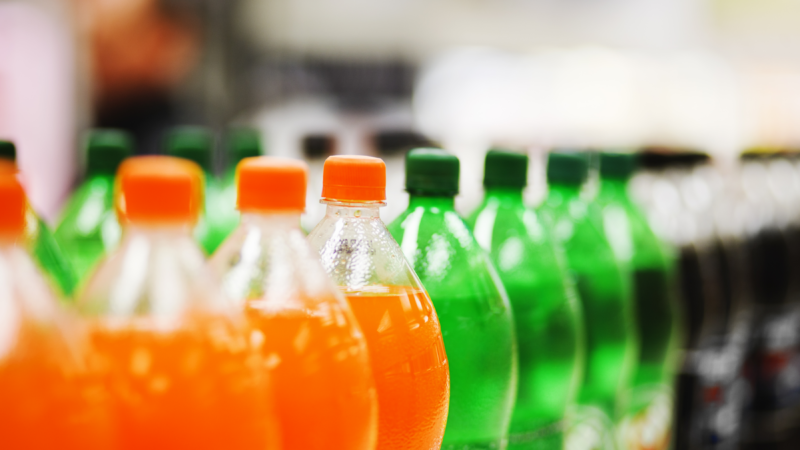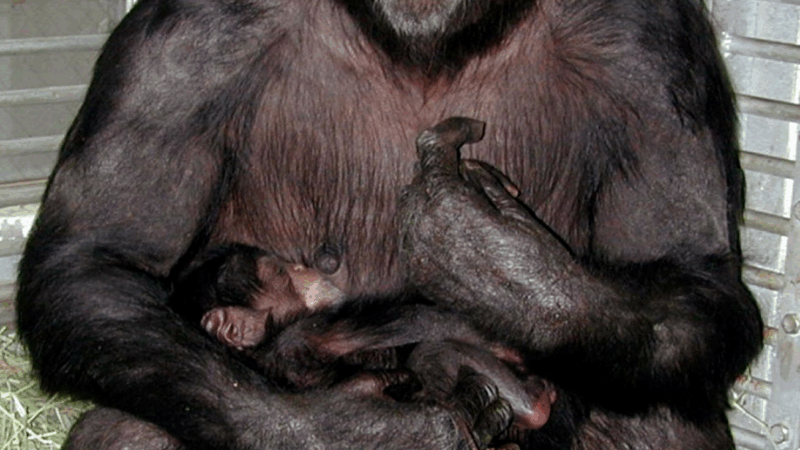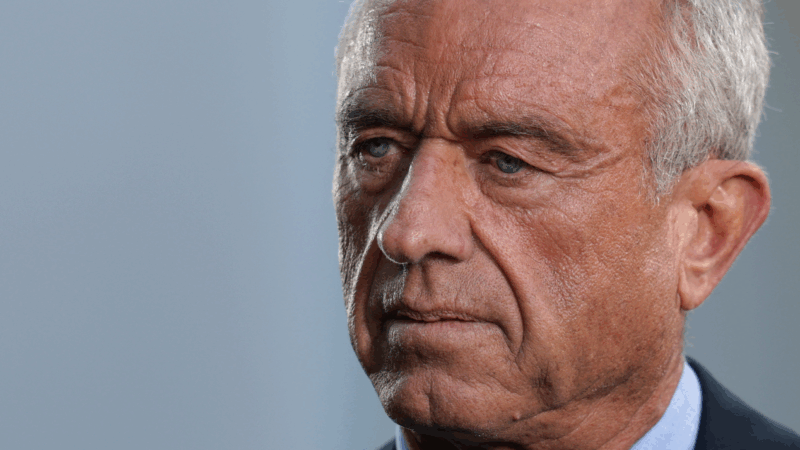RFK Jr. wants to stop people using SNAP benefits to buy soda. Will it help?
Most people who study nutrition agree, reducing the amount of soda Americans consume would be good for the nation’s health. But the plan to block people using the Supplemental Nutrition Assistance Program — SNAP — from buying soda is getting mixed reviews.
Health Secretary Robert F Kennedy Jr. is encouraging states to pursue the idea — which would have to be administered by the U.S. Department of Agriculture and possibly approved by Congress. But even if a ban is possible, many who study food policy are skeptical it would improve people’s health.
“Americans should drink less soda,” says Joel Berg, CEO of Hunger Free America, who worked on food policy under President Bill Clinton. “No question about it.”
Sugary drinks including soda are the leading source of added sugars in the American diet, contributing to obesity and heart disease.
But Berg doesn’t believe soda bans would help people to eat a healthier diet. “ If we really want to improve public health, we ought to make healthier food more affordable, more physically available, and convenient,” he says.
Natalie Kiyah is a single working mom of four who lives in Portland, Ore. She has intermittently received food assistance for more than a decade, and says she has occasionally used SNAP to purchase soda.
“I love to once in a while treat my kids,” says Kiyah. “Like a fun pizza night would also be soda night.”
For her, soda is a small indulgence, but a meaningful one.
“The more choice I have, I feel more dignity,” she says. “I feel more secure in who I am — having options — which then makes me a better mom and better mental health. It’s all connected.”
Kiyah says she struggles to pay bills and eating and drinking healthy foods ends up low on the priority list.
“Sometimes it’s like let me pop up some chicken nuggets in the microwave,” she says.
Giving people more money to spend on groceries when they buy fruits and vegetables can incentivize people to eat a healthier diet, says Dariush Mozaffarian, director of the Food as Medicine Institute at Tufts University.
“It’s a way of preserving choice and nudging people towards healthier behaviors.
He says it’s not a bad idea to discourage people on federal assistance from consuming things like soda and candy but he points to programs that use both negative and positive incentives as the most successful.
Mozaffarian says SNAP has been an effective program for reducing financial strain for families, but “it’s not been a very effective program for improving nutrition,” he says. “It’s the supplemental nutrition assistance program, and yet the N has been missing.”
One program that did improve nutrition is the expanded child tax credit, says Berg. He points to research from his organization that looked at the impact of the tax credit on people’s shopping behavior.
“ We found that low income people told us nationwide they were able to buy healthier food,” says Berg. “They were able to shop at more farmer’s markets. If you build it, they will come.”
Representatives from beverage companies have aligned their messaging with that of public health advocates.
“The majority of people on SNAP work, they just don’t make enough to make ends meet month to month,” says Meredith Potter, senior vice president at America Beverage. “It’ll treat them like second class citizens.”
One study suggests people on SNAP drink about the same amount of soda as those who aren’t using the benefit.
Potter argues that beverage companies are sensitive to concerns about sugar consumption and have responded to increasing market demand for beverages with fewer calories by bringing more choices to market.
“Just look at the explosion in growth in water and sparkling waters and flavored waters,” she says.
Representatives from both the U.S. Department of Health and Human Services and the Department of Agriculture — which administers SNAP — did not respond to an interview requests for this story.
Natalie Kiyah , the mom of four, says she had a message for the administration.
“There is so much more than soda that we are up against when it comes to giving our children and ourselves healthy foods and drinks.”
Edited by Jane Greenhalgh
Transcript:
ARI SHAPIRO, HOST:
Health Secretary Robert F. Kennedy Jr. wants to stop Americans from buying soda, at least those who are using the federal food assistance program known as SNAP. It’s unclear if Kennedy has the authority to make this change, and critics say it’s not the best way to get people to eat a healthier diet. NPR’s Katia Riddle reports.
KATIA RIDDLE, BYLINE: Among the people who are skeptical about Kennedy’s proposal – Natalie Kiyah, single, working mom of four. She’s been on and off food assistance for over a decade. She says she has used it to buy soda.
NATALIE KIYAH: Like, I love to, once in a while, treat my kids. Like, a fun pizza night would also be soda night.
RIDDLE: Kiyah says it’s a small indulgence, but it’s a meaningful one.
KIYAH: The more choice I have, it feels – first of all, I feel more dignity. I feel more secure in who I am, having options, which then makes me a better mom and better mental health. Like, it’s all connected.
RIDDLE: Some people who study food policy say it’s not a bad idea to discourage people on federal assistance from consuming things like soda and candy. Dariush Mozaffarian directs the Food As Medicine Institute (ph) at Tufts University. He says SNAP has been an effective program for reducing financial strain for families.
DARIUSH MOZAFFARIAN: And at the same time, it’s not been a very effective program for improving nutrition. It’s the Supplemental Nutrition Assistance Program, and yet the N has been missing.
RIDDLE: Mozaffarian says it is important that states try new things to promote healthier eating. But he points to programs that use negative and positive incentives as the most successful. For example, giving people more money to spend on groceries when they buy fruits and vegetables.
MOZAFFARIAN: That’s a way of preserving choice but nudging people towards healthier behaviors.
RIDDLE: One thing most people who study food agree on – too much sugary soda does contribute to obesity and chronic disease. One study found people not on SNAP benefits drink almost the same amount as those who are.
JOEL BERG: Americans should drink less soda. No question about it.
RIDDLE: Joel Berg is the CEO of an organization called Hunger Free America. He worked on food policy under President Clinton. He doesn’t believe Kennedy’s proposal is the way to make people healthier.
BERG: If we really want to improve public health, we ought to make healthier food more affordable, more physically available and convenient.
RIDDLE: Berg points to research from his organization that looked at the impact of the expanded child tax credit on people’s shopping behavior. That credit put more money in their pockets.
BERG: We found that low-income people told us nationwide they were able to buy healthier food. They were able to shop at more farmers markets. If you build it, they will come.
RIDDLE: Another group that’s not a fan of restricting soda purchases – beverage companies. Merideth Potter is senior vice president at American Beverage. That’s an industry group. She says it’s a soundbite solution to a very complex problem, and it’s picking on working families.
MERIDETH POTTER: The majority of people on SNAP work. They just don’t make enough to make ends meet month to month. It will treat them like second-class citizens.
RIDDLE: Potter says beverage companies are sensitive to concerns around sugar.
POTTER: Our companies have been innovating and bringing more choices to market that have less sugar. I mean, just look at the explosion in growth in water and sparkling waters and flavored waters.
RIDDLE: Representatives from both the Department of Health and Human Services and the U.S. Department of Agriculture, which administers SNAP, did not respond to an interview request for this story. Natalie Kiyah, the mom of four, says she has a message for the administration.
KIYAH: There is so much more than soda that we are up against when it comes to health and being healthy and giving our children and ourselves healthy foods and drinks.
RIDDLE: Kiyah says working full-time, being a single mom of four kids, she feels like she’s on a hamster wheel.
KIYAH: A lot of times, it feels like because I have to pay my bills – and I can barely pay my bills – and so there’s no time except, here, let me pop up some chicken nuggets in the microwave.
RIDDLE: She says instead of a soda ban, she could really use more time and money to make a healthy meal. Katia Riddle, NPR News.
(SOUNDBITE OF AMERICAN FOOTBALL’S “FIVE SILENT MILES”)
‘Not for sale’: massive protest in Copenhagen against Trump’s desire to acquire Greenland
Thousands of people rallied in Copenhagen to push back on President Trump's rhetoric that the U.S. should acquire Greenland.
Uganda’s longtime leader declared winner in disputed vote
Museveni claims victory in Uganda's contested election as opposition leader Bobi Wine goes into hiding amid chaos, violence and accusations of fraud.
Opinion: Remembering Ai, a remarkably intelligent chimpanzee
We remember Ai, a highly intelligent chimpanzee who lived at the Primate Research Institute of Kyoto University for most of her life, except the time she escaped and walked around campus.
The near death — and last-minute reprieve — of a trial for an HIV vaccine
A trial was about to launch for a vaccine that would ward off the HIV virus. It would be an incredible breakthrough. Then it looked as if it would be over before it started.
Bessemer data center developer to request rezoning for additional 900 acres
The city’s attorney informed council members of the request on Tuesday, warning that there may be media scrutiny.
Is RFK Jr.’s Administration for a Healthy America — AHA — in the works or not?
The Administration for a Healthy America is RFK Jr.'s plan to tackle chronic disease, addiction and other persistent problems. But so far it's not being set up like previous new agencies.






